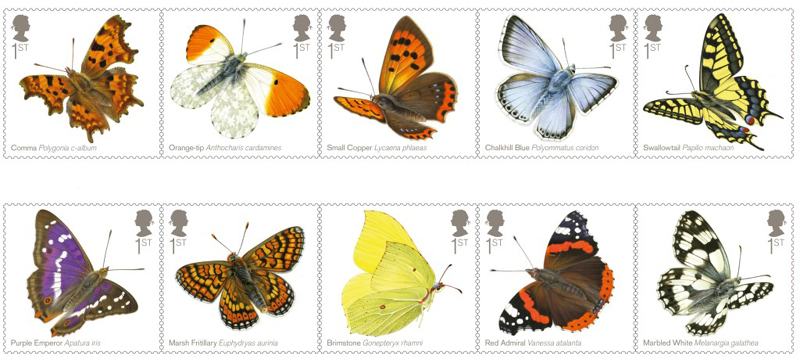Some areas originally proposed were excluded because conservation agreements are in place to conserve the species. Some areas were modified based on biological information; areas with unsuitable habitat were removed, and areas that were found to have suitable habitat were added. In total, these changes amounted to reductions of 7,879 acres for the Dakota skipper and 296 acres for the Poweshiek skipperling.
Found in Minnesota, North Dakota, South Dakota and Canada, the Dakota skipper has experienced a dramatic decline in numbers and no longer occurs on half the sites where previously found.
The Poweshiek skipperling has also experienced a recent, dramatic decline in numbers. Once found in eight states and Canada, it now occurs only in a few native prairie remnants in Wisconsin and Michigan, and in Manitoba, Canada. Surveys indicate that Poweshiek skipperlings are gone from about 96 percent of the sites where they were known to occur.
Prairie remnants that are home to these butterflies are some of the few natural areas present across the predominately agricultural landscape of the Dakotas and western Minnesota. These prairie grasslands support a diverse array of native wildlife including grassland birds such as the sharp-tailed grouse, blue-winged teal, mallards and other waterfowl, prairie plants such as big and little bluestem and the pasque flower, and many species of pollinators, such as the monarch butterfly.
These grasslands also protect watersheds by increasing water infiltration and water yield, provide improved water quality due to the lack of fertilizer, pesticide and herbicide use. Recent studies have found diverse native prairie plants sequester large amounts of carbon.
For more information about the Dakota skipper, the Poweshiek skipperling, and the final critical habitat designation, go to www.fws.gov/midwest/endangered
Source: Summit County Citizens Voice, October 1, 2015
http://summitcountyvoice.com/2015/10/01/threatened-prairie-butterflies-…

- Login om te reageren
